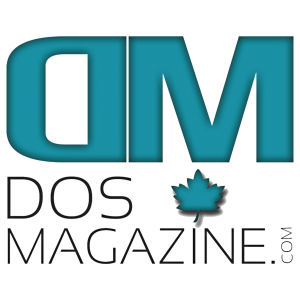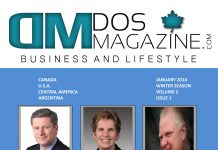Canada’s attractiveness as a study destination is on the rise. According to Canadian Bureau for International Education, the total number of international students in Canada grew by 92% between 2008 and 2015, and by 8% between 2015 and 2016 alone. Given reports on increased international traffic to university websites and attendance at admissions presentations, there is every indication the trend will continue.
Teo Salgado of VerveSmith, a Toronto-based independent educational consultant, says his office is receiving an increased number of inquiries from countries that traditionally send students to the United States or Great Britain. “Registration for a series of public presentations in Turkey reached capacity within days of being posted online. We had to find alternate meeting times to accommodate interest,” he says. “Interest is not limited to post-secondary studies. Many families are also looking for assistance with boarding and homestay options for high school students,” Salgado added.
While final application figures are not yet available for 2017, Canadian educators have noted increased admissions inquiries and applications. For example, the University of Toronto reports undergraduate applications increased by 20%, the University of Waterloo, University of Alberta, and McGill University reported increases in international applications of 41%, 30%, and 25% respectively.
Industry analysts and trade officials suggest the increases are not just related to political events in Britain and the United States. The appeal of study opportunities in Canada are also related to improvements in visa processing, attractive currency exchange rates as well as enhanced marketing activities by educational institutions.
The option to work on- and off-campus while studying has also made Canada a more attractive study destination. Study permit holders may be eligible to work on- or off-campus for up to 20 hours a week during the academic year, up to 40 hours a week during study breaks, and to participate in co-op and internship placements.
As if that were not attractive enough, study permit holders may apply for a work permit under the Post-Graduation Work Permit Program (PGWPP). Skilled work experience gained through the PGWPP helps graduates qualify for permanent residence in Canada through Express Entry.
Still the decision to study in a foreign country is not one to be taken lightly. VerveSmith’s Teo Salgado offers the following advice to students and families:
- Studying abroad requires planning – The process of finding the right university or college, not to mention the right academic program, requires time, especially when dealing with foreign institutions thousands of kilometers away. Families need to allocate time to researching educational options. Advance planning gives students more time identify a broader range of options, and to prepare to be more competitive for in-demand programs.
- Choosing schools based on rankings has limitations – Families often use rankings to choose universities and colleges for their students. While they may help narrow the range of options, they are not particularly useful for determining whether they match student preferences. David Naylor, former University of Toronto president noted, “I learned to be wary of aggregate rankings of institutions. Imagine a hospital that was superb at heart surgery but had a mediocre obstetrics program. The combine rating for these two programs would be useless for heart patients and expectant women alike. It must be the same when complex universities are reduced to a single score.” There are some excellent universities that may not be obvious from a review of rankings.
- Focus on making a good match – Students should start the process of considering higher education options with a closer look at themselves, not with a list of universities or colleges.
With more than 160 institutions of higher education to choose from in Canada, students need to first identify their vocational interests and determine whether a university or college education is better suited to achieve their goals. Once this is done, the student can better determine which university or college is better positioned to help him meet his aspirations.
Teo Salgado is principal of VerveSmith – Independent Educational Consultants based in Toronto, ON (Canada)
____________________________________________________________________
Photos credit: Teo Salgado













